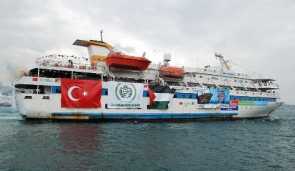Operation Donkey brings Iraqi equine to US
(AP) – 21 hours ago
WASHINGTON (AP) — It took 37 days and a group of determined animal lovers, but a donkey from Iraq is now a U.S. resident.

Smoke The Donkey, who became a friend and mascot to a group of U.S. Marines living in Iraq’s Anbar Province nearly three years ago, arrived in New York this week aboard a cargo jet from Turkey. After being quarantined for two days he was released Saturday and began a road trip to Omaha, Neb., where he is destined to become a therapy animal.
The chest-high donkey’s story begins in the summer of 2008, when he wandered in to Camp Taqaddum west of Fallujah, a former Iraqi air base being used by Marines.
The smoke-colored donkey, which once snatched and ate a cigarette from a careless Marine, soon became such a part of the unit that he received his own care packages and cards. Marines took care of him until 2009 when they left the area, but they turned Smoke over to a sheik who promised to care for him.
But one of the Marines, retired Col. John Folsom, couldn’t forget Smoke.
Folsom used to walk Smoke daily and had formed a bond with the animal. It didn’t seem right that Smoke was left behind, he said in a telephone interview Saturday.
Folsom, the founder of a support group for military families, Wounded Warriors Family Support, decided to see if Smoke could be brought to the United States to serve as a therapy animal.
Getting Smoke back proved more difficult than Folsom realized. At first, the sheik demanded $30,000 for the famous donkey, a demand that was later dropped. Then, there was the bureaucracy of getting Smoke nearly 7,000 miles around the world: blood tests, health certifications and forms from customs, agriculture and airline officials.
To cut through the red tape, Folsom got help from the Society for the Prevention of Cruelty to Animals International, which has a project that transports dogs and cats from Iraq to the United States.
The group, however, had never attempted airlifting a donkey, which is more complicated because equines can’t be transported on traditional commercial aircraft and must go by cargo plane.
The donkey’s journey has provided laughter — and head scratching — along the way.
“People just couldn’t believe we were going to these great lengths to help a donkey because donkeys in that part of the world are so low down on the totem pole,” said the society’s Terri Crisp, who negotiated the donkey’s passage from Iraq to the United States. “Donkeys are not viewed as a companion animal. They’re viewed as a work animal.”
As frustrating as the journey sometimes was for those involved, including a week-long delay getting Smoke in to Turkey and another three weeks to get out, the donkey found friends and supporters along the way, Crisp said. They included the U.S. ambassador in Turkey, who at one point was getting daily updates.
“I think people did finally come to realize that this is one of these out-of the-ordinary situations. Once you met him and saw what a unique donkey he was, it was hard to say no to him,” Crisp said, describing Smoke as “gentle” and “mischievous” as well as a food-lover — carrots and apples in particular.
The journey, which started April 5, wasn’t cheap.
The society estimates it cost between $30,000 to $40,000 from start to finish, with expenses such as $150 to ship Smoke’s blood from Turkey to a U.S. Department of Agriculture lab in Iowa, $18,890 for a Lufthansa flight through Frankfurt, Germany and $400 a day for quarantine in New York. Folsom says he recognizes some people may be critical of the expense, which was paid for through donations, but he says he considers it payback for the donkey that was such a friend to Marines.
“Why do we spend billions of dollars of pet food in this country? Why do we do that?” Folsom said. “We love our animals. That’s why.”
Folsom saw the donkey for the first time in years Saturday when he arrived in New York to transport him to his new home in Omaha. By Saturday afternoon they had driven through Baltimore and were on their way to Warrenton, Va., for meet-and-greet with some fans. The journey to Omaha is expected to take two days, and Folsom said Smoke is already getting used to seeing big, green trees instead of desert.
“He’s an American donkey now,” Folsom said.
Copyright © 2011 The Associated Press. All rights reserved.
via The Associated Press: Operation Donkey brings Iraqi equine to US.




